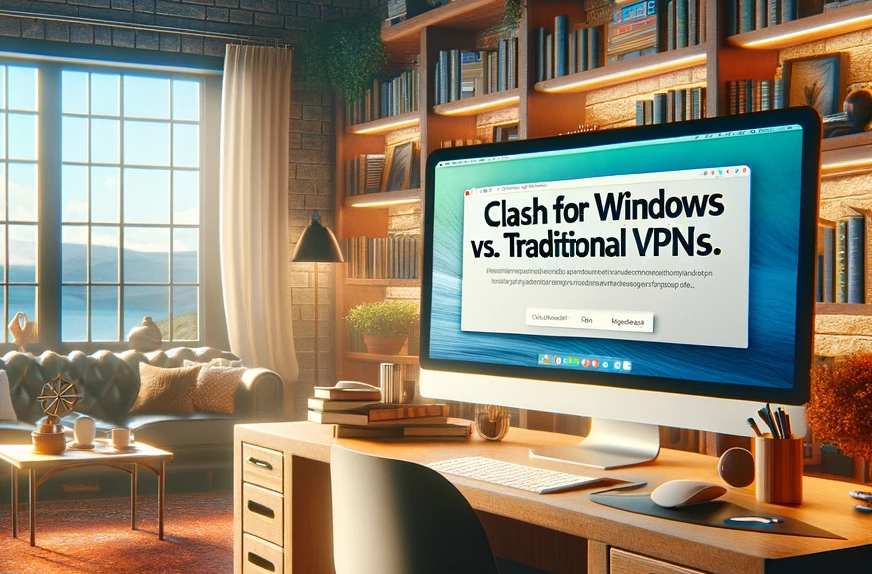
In the ever-evolving landscape of internet security and privacy, the tools we use to safeguard our online presence are paramount. Among these tools, Virtual Private Networks (VPNs) have long stood as the bastion of online privacy. However, a new contender, Clash for Windows, has entered the arena, challenging the status quo of traditional VPNs. This article delves into a detailed comparison between Clash for Windows and conventional VPN solutions, focusing on features, speed, and security.
Understanding the Contenders
Before we dive into the comparison, let’s understand what we’re dealing with. Traditional VPNs are software that encrypts your internet traffic and routes it through a server in a location of your choice. This masks your IP address and helps protect your online identity and privacy. Examples of popular traditional VPN software include NordVPN, ExpressVPN, and CyberGhost, known for their robust security features and extensive server networks.
On the other hand, Clash for Windows is not a VPN in the traditional sense but a rule-based network tunneling software. It allows users to customize how their traffic is routed based on domain names, IP addresses, or other rules, providing a more personalized and flexible approach to traffic management.
Feature Comparison
When it comes to features, traditional VPNs often boast a wide array of options like kill switches, split tunneling, and dedicated IP addresses. They typically offer user-friendly interfaces, making it easy for even the least tech-savvy users to enhance their online privacy.
Clash for Windows, while different in its core functionality, offers unique features tailored for users who desire greater control over their network traffic. It provides detailed rule-based routing, allowing for granular control over which apps or websites use VPN tunneling and which don’t. This can be particularly useful for users who need to navigate complex network environments or who want to optimize their internet usage for speed or cost.
Speed and Performance
Speed is a crucial aspect of any internet-based service. Traditional VPNs can sometimes slow down your internet connection due to the encryption process and the distance of the server you’re connected to. However, many modern VPNs have optimized their network infrastructure to minimize speed loss, ensuring fast and reliable connections.
Clash for Windows, with its rule-based routing, can potentially offer better speeds for savvy users who configure it correctly. Since it can bypass the VPN tunnel for selected traffic, it can reduce the bandwidth load on the VPN server, which might result in faster overall internet speed. However, the actual speed can vary significantly based on the user’s configuration and the specific rules they have set up.
Security Aspects
Security is arguably the most critical factor in this comparison. Traditional VPNs have a long-standing reputation for providing strong encryption protocols like OpenVPN and WireGuard, which are designed to secure your data from hackers and snoopers.
Clash for Windows also prioritizes security but in a different manner. It allows users to define specific security rules for their traffic, offering a tailored security approach. However, the security level heavily depends on the user’s ability to configure these rules effectively, which might not be suitable for everyone.
What now?
Choosing between Clash for Windows and traditional VPNs depends largely on your specific needs and technical expertise. If you prefer a straightforward, user-friendly solution with solid security and don’t mind the potential for slightly slower speeds, a traditional VPN might be the way to go. For those who require detailed control over their network traffic and are comfortable with a more hands-on approach, Clash for Windows offers a compelling alternative.
Whichever you choose, ensure that it aligns with your internet usage habits, security needs, and technical proficiency. Remember, the best tool is the one that fits your personal or organizational requirements the most effectively.
Explore more about VPN solutions by checking out some of the top VPN providers like NordVPN (www.nordvpn.com), ExpressVPN (www.expressvpn.com), and CyberGhost (www.cyberghostvpn.com). Each offers unique features and pricing plans to suit various user needs.
Remember, the most important thing is to ensure your online privacy and security are uncompromised.